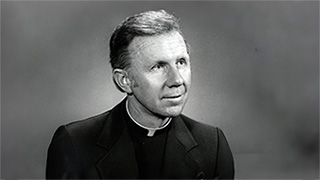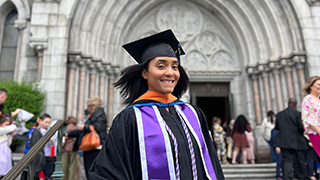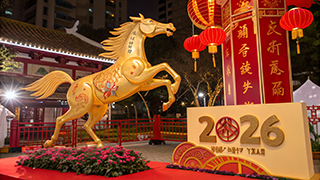Diplomacy Faculty Awarded Stanton Grants - Seton Hall University
Wednesday, April 1, 2020
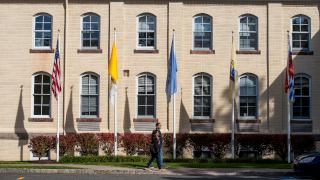
Created by Dr. Frank Stanton, a founding father of the television industry and longtime president of CBS, the Stanton Foundation supports work on nuclear security. Stanton maintained an abiding interest in international security and American foreign policy. He was a lifetime member of the Council on Foreign Relations, chairman and trustee of the RAND Corporation.
He also served on numerous presidential commissions charged with preparing the U.S. for the realities of living in a nuclear world. His involvement with nuclear issues began with his appointment to a committee convened by Dwight Eisenhower in 1954 to develop the first comprehensive plan for the survival of the U.S. following a nuclear attack. Stanton had lead responsibility for developing a plan for national and international communication in the aftermath of a nuclear incident.
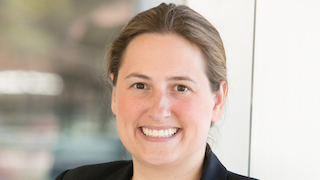
Assistant Professor Sara Moller
Moller's new course, "Nuclear Weapons & International Security" will examine contemporary nuclear strategy and policy issues, building on the School of Diplomacy's current undergraduate security course offerings. Moller, who also teaches DIPL 2120: International Conflict and Security, credits Diplomacy students with the idea for a nuclear security course. "Over the past couple of years, I've noticed a real demand for a course such as this," said Moller. "While I typically spend one or two weeks on the topic when I teach International Conflict and Security, students have consistently reported back they are hungry to learn more about nuclear security issues."
"One possible factor driving Diplomacy students' interest in the study of nuclear weapons is the contemporary security environment," said Moller. Far from being a vestige of the Cold War, nuclear proliferation and arms control issues are front and center today.
On issues ranging from arms control agreements like the Intermediate Range Nuclear Forces (INF) and New START treaties, to non-proliferation efforts like the Joint Comprehensive Plan of Action (JCPOA), to the development and deployment of low-yield nuclear weapons, the Trump Administration appears to be making a break with past U.S. nuclear policies. All of which, says Moller, adds to the urgency of studying nuclear weapons and their effects on the international system.
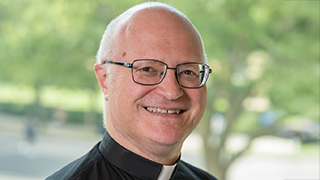
Assistant Professor Father Brian Muzás
In addition to funding the new course, the Foundation has also generously sponsored a fellowship opportunity for Father Brian Muzás, another assistant professor in the School of Diplomacy. As a Stanton Nuclear Security Fellow, Muzás will be in residence full-time at the Council on Foreign Relations in New York.
"Stanton Nuclear Security Fellows are expected to conduct a project of their own design, undertake original research, and write at least one policy-relevant document," said Muzás. "I plan to work on a book project about the influence of religious cultural heritage on the nuclear decisions of Cold War presidents. My research will encompass work at several presidential libraries maintained by the National Archives and Records Administration. I expect to learn lessons from history that will help us to better understand the present."
Muzás continued,
The same week I was offered a Stanton Fellowship, the NGO Committee on Disarmament, Peace, and Security approached me about writing on nuclear issues for their quarterly publication, The Disarmament Times. Not only was the timing fortuitous, but this opportunity allows me to cross-pollinate my nuclear affairs scholarship with my NGO activity in a policy-relevant way in a way that advances the missions of the Stanton Foundation, the CFR, and the NGOCDPS. I'm excited!
It is never a surprise when diplomacy faculty are recognized for their expertise and in-depth knowledge of their respective fields. Read more about the great minds at SHU Diplomacy on our faculty scholarship page.
Categories: Nation and World, Research




